Farmer Don Hardiman of Geezer’s Gardens
What prepared you to be a farmer? Not sure I am prepared, though I was born on a farm in rural Limestone County, AL in 1941 and grew up absorbing by osmosis, the lesson that if one is to farm, certain tasks must be performed using certain methods at certain times, or things don’t work. And if you are a subsistence farmer —- you and your family get hungry. I think that lesson has stood me in good stead all of my life. I have not farmed continually all of my life —-got sidetracked for a while and have had a couple of other careers —- but that understanding works in most every venue. City kids can and often do learn the lesson, but they have to learn it. Most do, at some point in life, but until it is learned, they are disadvantaged.
What is a unique feature and how many acres do you farm? I suppose the most unique feature about the place is its’ location. It is at the very top of a watershed so no pollutants (except rain and airborne ones) arrive on it. If there is damage, I have to accept responsibility for it. The place is 200 acres, but we have only about 20 percent of it in “cultivation” Mostly it is deciduous woodland. It grows timber well enough and would do little else on most of the land. It lies atop and down the sides of what passes locally for a “mountain”. It’s highest point is approximately 1600 feet above sea level. Not much of a mountain actually, more of a molehill. Most of the parts on the side of the “mountain” are very steep and not well adaptable for growing crops other than timber. The very top is somewhat rolling terrain, so we have to be quite careful about erosion. We plant with the contours and make sure that the swales (drainage watercourses) are planted to sod at all times. These methods along with the fact that we never plow it up combine to improve it rather than cause damage. The portions where we plant food crops are narrow strips, perhaps two feet wide. Those we till (again on contour) and once the crops are planted and out of the ground, we mulch to help maintain moisture and keep down unwanted vegetation. The areas between the rows are rapidly, regularly cut with a lawn mower. This actually serves to kill many insects, and is far less energy intensive than tilling it all. The method yields another side benefit, in that the whole is aesthetically pleasing and low maintenance. If it has just rained, and there is work in the field to be done, one is not working in mud.
Tell us about your main crops and how you chose the varieties. If you have livestock, tell us about your feed and how they live on your farm. Mainly, we grow vegetables and mushrooms. I have an assistant who has many years experience at veggie growing, and he is rapidly adapting to our methodology. We do have some livestock —- most at the moment owned by my assistant. There is a herd of alpacas, Maybe eight or ten, there are a few goats, a few pigs, a donkey, a mule and some dogs and cats. We plan soon to add a few cows and calves. Every animal has a specific purpose, ( except the mule) so far, he is for entertainment. Waste veggies are fed to the animals and they graze in their pastures and are supplementally fed as needed, and their droppings collected and composted along with the waste product from the mushroom growing for use as fertilizer. Varieties of veggies we grow are mostly Heirloom types, selected for quality of product rather than other criteria. How much of food goes to farmers markets and or restaurants? Virtually all of our production is sold to restaurants or fed to the animals or consumed by us, (or given to others).
What challenges do you have as a farmer?
Weather and other forces of nature — insects etc. We do not use conventional pesticides.
Second challenge is making enough money to stay in business.
Third through 50 ‘th is trying to figure out how to improve production while improving the land.
Where do you see farming in the future? There are moves afoot, sponsored by Corporate agriculture to destroy small holder producers. Silly laws are being written by people who are being lobbied by Corporate Organizations and who could not identify a garden hoe if they stepped on it. I plan to live out my life doing what I am doing, and if I am made an outlaw for sustainably producing on a small scale, so be it. I hope that when I am gone, someone will step in and take up my mantle. Climate change may make this all irrelevant —- at least in this latitude. The heat the last few summers has made production difficult.
Where would be your ideal location for your last supper, what would be your meal & music and who would join you ? I think it would be under a wild cherry tree on my farm —- probably a cookout —- with my children and grandchildren, many of my friends from the rest of my life and from the Restaurant Industry in attendance —- Probably cook some pork ribs on a grille, and have the traditional things that go with them – a fine green salad with chopped romaine and heirloom tomatoes– some grill roasted sweet corn —- perhaps some al dente haricot vert, and some fine potato salad, deviled eggs and baked beans. Music would probably be rousing classical —- Maybe Beethoven’s Fifth — or Wagner’s Ride of the Valkries —- or the 1812 Overture—-.
Don Hardiman is age 69 and counting who’s previous career has been engineering assistant and photographer — technical representative, designer and manufacturer of fine custom jewelry and final career: Farmer and he hopes —inventor. Don Hardiman — “The Geezer’s Garden” PO Box 278 — Gurley, AL 35748 , 256 603 0417



 October 5, 2010
October 5, 2010 
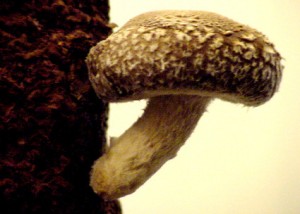


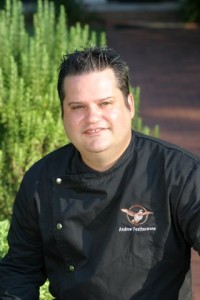
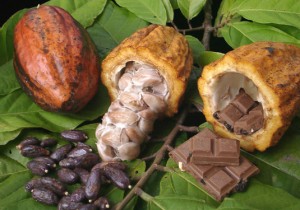

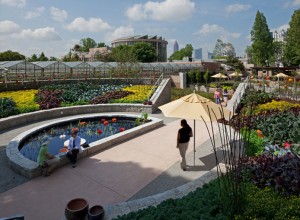
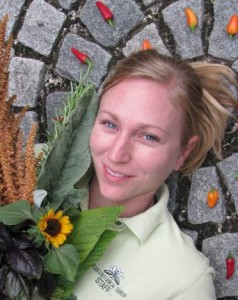





Trackbacks/Pingbacks
[...] Foraging Join Chef Drew VanLeuvan of One Midtown Kitchen and Farmer Don Hardiman of Geezer Gardens Tuesday, October 5 at 7PM [BYOB] location…..shhh, it’s a secret [...]
[...] SHARETHIS.addEntry({ title: "Chef Drew VanLeuvan", url: "https://forfoodssake.org/2010/09/26/chef-drew-vanleuvan/" }); Fork in the Road Don Hardiman, drew VanLeuvan, mushroom foraging Chef Betsy Pitts Farmer Don Hardiman of Geezer’s Gardens [...]